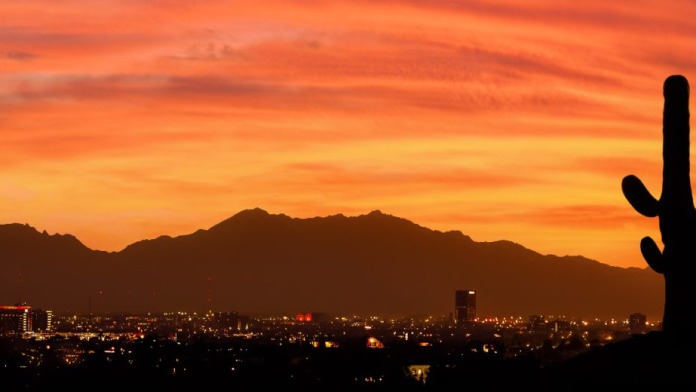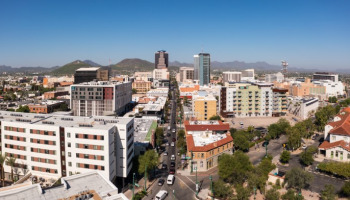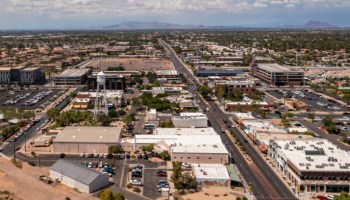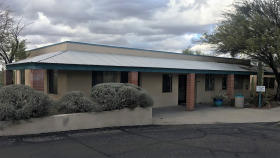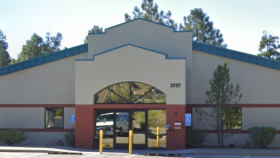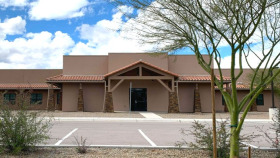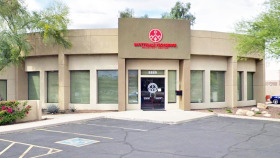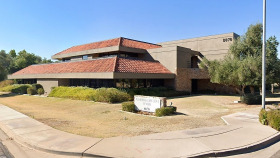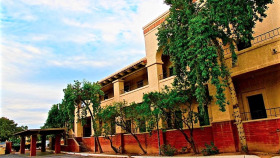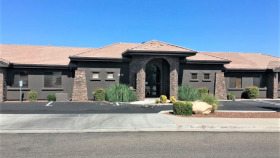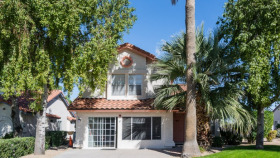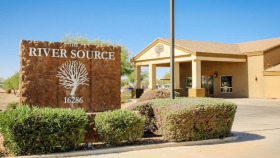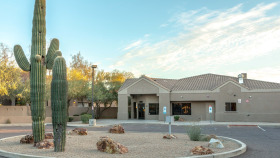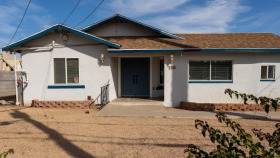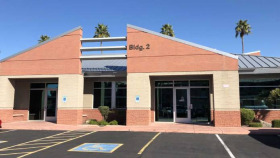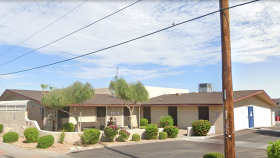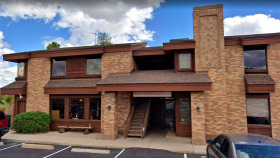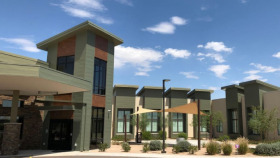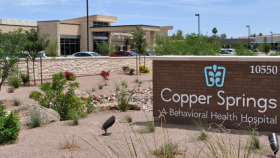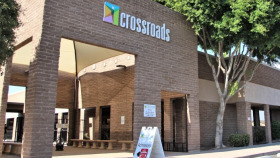Expert Insights
In 2022, Arizona reported 3.1 million opioid prescriptions written. In the same year, the number of drug-related emergency calls exceeded 67,000, while the overdose death rate soared to 30 per 100,000 Arizonans.
The death rate was highest among Arizonans in the prime of their lives, those in the 35 to 44 age group. The data underscore the dire impact synthetic opioids, such as fentanyl, have had on Arizona’s cities, towns, and communities. The facts also speak to the urgency and importance of treatment for those experiencing dependency and to the deep need for tailored addiction prevention strategies throughout the state.
~ Gayle Morris, BSN, MSN
How Much Does Drug Rehab Cost in Arizona?
Arizona is ranked 32nd nationwide in terms of addiction treatment affordability, with an average cost of drug and alcohol rehab of $56,789 (without insurance).
- Medical detox is the most expensive, with an average cost of $140,006
- Long-term inpatient drug rehab in Arizona costs an average of $50,113
- Outpatient addiction treatment in Arizona costs an average of $8,327
- Outpatient methadone treatment is the most affordable, with an average cost of $7,398
How to Pay for Drug Rehab in Arizona
As of 2024, there were over 500 drug rehab facilities across the state of Arizona. These facilities accept several payment methods. Of those treatment facilities, the following numbers reflect how many accept their respective payment methods:
While several treatment centers offer free care, others offer low-cost options that reduce your financial burden. There are several ways to pay for addiction treatment in Arizona that increase your accessibility to the care you need to achieve sobriety.
Private Pay + Insurance
Nearly all major insurance providers offer coverage for mental health and substance use disorder treatment. This is mandated by two federal laws: the 2008 Mental Health Parity and Addiction Equity Act and the 2010 Affordable Care Act.
However, there are exceptions to qualify, so you must verify your insurance coverage before beginning treatment. Most insurance providers have a member services phone number that can answer your questions and many addiction treatment centers will also verify your insurance coverage and answer questions about your deductible and copays.
Some people choose to pay out of pocket, which is also called self-pay or private pay, to reduce the potential that their employer doesn’t learn about their addiction treatment. The following are some of the major health insurance providers in Arizona.
- Ambetter from Arizona Complete Care
- Banner Health and Aetna Health Plan
- Blue Cross Blue Shield of Arizona
- Caremore Health Plan of Arizona, Inc.
- Cigna HealthCare of Arizona
- Health Net of Arizona, Inc.
- Humana
- Imperial Insurance Companies
- Medica
- Oscar Health Plan, Inc.
- Pivothealth
- UnitedHealthcare
- Scan Health Plan
Medicaid
Medicaid is a collaborative approach between states and federal agencies to provide healthcare to eligible individuals and families. Nationally, Medicaid covers 98,620,000 individuals and 2,527,100 in Arizona. According to the Arizona Healthcare Cost Containment System, people who qualify for Medicaid include Arizona residents who do not qualify for Medicare, are U.S. citizens, or immigrants with a social security number or who have applied for one, and meet income requirements.
People who qualify for Medicaid can use Arizona Complete Health or Care First Health Plan through the Centene Corporation to manage healthcare, including behavioral health, crisis intervention, and individuals with complex medical needs.
Medicare
Medicare is a federal program that provides healthcare coverage for people who are age 65 and older or individuals under 65 with certain health conditions and/or disabilities. Medicare does help pay for substance abuse treatment at addiction treatment centers that accept Medicare payments.
Medicare has four parts that help cover treatment. Medicare Part A pays for hospitalization or inpatient care; Medicare Part B pays for outpatient care and doctor’s visits; and Medicare Part D helps pay for prescription drugs, such as drug substitution programs for opioid addiction. Commercial insurance providers offer Medicare Advantage Plans, also called Medicare Part C, which are premium-based, managed care policies that offer more benefits.
Military Insurance
TRICARE is the military healthcare program for active-duty military personnel, veterans, and their families. They provide comprehensive coverage, including substance abuse treatment. The coverage includes care at VA hospitals and civilian facilities. TRICARE splits the U.S. coverage into two regions: East and West. Arizona is covered in the West Region and is managed by Health Net Federal Services.
VA health care also covers regular care for primary care providers and appointments with specialists, including mental health providers. Millions of veterans may meet eligibility requirements that include basic service and discharge requirements and who were exposed to hazards while serving, at home or abroad. You must have served 24 continuous months and enlisted after September 7, 1980, or entered active duty after October 16, 1981.
Tribal Funding and Programs
There are 22 federally recognized tribes in Arizona. Arizona tribes have received federal grants to help battle the addiction crisis, and the Inter Tribal Council of Arizona helped establish the Arizona Inter Tribal Trust Fund in 1988.
The Inter Tribal Council of Arizona helps support several health initiatives, including for the elderly, teen pregnancy, and cancer. There are several tribal resources, including the Arizona Indian Council on Aging, Native Health, Navajo Nation Division of Child Support Services, Native Americans for Community Action, and Tucson Indian Center.
Other Low-Cost Options
When a free drug rehab center is not available, there are low cost options that can help cover your costs. The following are options you might consider:
- Private loans: This is the fastest way to start addiction treatment. Bank loans are confidential, but loans from friends and family typically have a lower interest rate and a more flexible repayment plan.
- Payment plans: Some treatment centers offer flexible payment plans to help cover the cost of treatment, deductibles, copays, and coinsurance.
- Sliding Scale Fees: Treatment centers may offer sliding scale fees based on your income and ability to pay, which you must document.
- Faith Based Organizations: Faith based organizations are often nonprofit and provide free or low cost care for substance abuse treatment.
- Grants and Scholarships: Local and national organizations offer grants and scholarships to help pay for addiction treatment. One such group is the Substance Abuse and Mental Health Services Administration, which offers a variety of programs.
- Friends and Family: It may be difficult to ask for help, but all drug counselors will tell you that addiction is a disease and seeking help is an important step toward recovery.
Free Rehabs in Arizona
Free and low cost drug rehab can reduce the financial barrier that may keep you from receiving the help you need. Drug rehabilitation is not a luxury. It’s a necessity to achieve sobriety and sustainable recovery. With recovery, you’ll be on the path to improving your quality of life and relationships with your friends and family. We understand how difficult it can be to get help when the ability to pay stands in the way.
Several addiction treatment centers in Arizona offer services for a reduced cost or for free. They typically include the same services you would receive at a luxury rehab center, such as inpatient and outpatient programs, medical detox, and aftercare options. The difference is in the available amenities within the center.
Addiction treatment centers that offer free and low cost options specialize in making treatment accessible regardless of your ability to pay. Free rehab can help you manage your withdrawal symptoms and address the trauma that may have triggered substance abuse. There are nearly 500 active facilities that treat drug and alcohol abuse in Arizona, servicing nearly 80,000 people each year. Many of these offer low cost options to treat substance abuse.
Free Addiction Treatment Resources in Arizona
Arizona Women’s Recovery Center
The Recovery Center is a nonprofit that helps provide addiction treatment for women by providing them the tools and resources to help them live independent and drug free lives. Programs include housing, family services, outpatient programs, and career services.
Drug Free Arizona Kids
Southwest Behavioral and Health Services provides this program to help reduce drug and alcohol abuse in youth and increase awareness among parents, caregivers, and healthcare providers. They have programs to address the concerns and questions of parents, schools, teachers, and the community.
Shot in the Dark
Shot in the Dark operates out of Phoenix, Arizona to provide several resources to help reduce harm, including education, referrals, and Naloxone. The program is run by volunteers.
notMYkid
The organization helps youth make positive life choices, including preventing addiction and mental health challenges. Programs include behavioral health treatment with masters level clinicians, peer support programs, and prevention education.
Pinal County Free Narcan Kits
Pinal County provides free Narcan kits to help reduce the number of people who overdose and die from opioid drugs. The Arizona Department of Public Health provides these free kits with no prescription required at pick up locations around the state.
Drug Laws in Arizona
Arizona DUI Law
Arizona considers a DUI a serious offense and has one of the strictest laws in the nation. There is mandatory jail time for first offenders and anyone convicted must install an ignition interlock device in their vehicle. You don’t have to be driving or in motion for a DUI charge.
Naloxone Standing Order
Arizona has a standing order signed by the Department of Health Services that authorizes any licensed pharmacist in Arizona to dispense naloxone to anyone who asks.
Arizona Marijuana Laws
The state legalized recreational use in 2020 and began selling marijuana through licensed dispensaries in 2021. Adults 21 and older can legally possess up to 28 grams and cultivate as many as six plants in their home. Qualifying marijuana products include capsules, concentrates, and extracts.
Arizona Drug Testing
Employers need a written policy for drug testing and retesting that is distributed to employees and employees must be informed of the written policy. The policy must include the substances being tested, and the right of the employee to get the written results. An employer can collect and test samples for job-related purposes.

